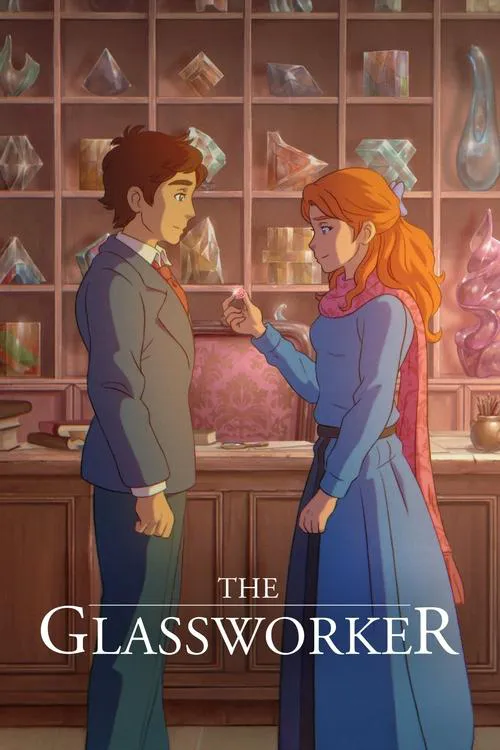The Glassworker

Plot
In a small, idyllic seaside town, nestled between the rolling hills and the vast expanse of the ocean, a young glassworker-in-training named Elio lives with his father, a man of great compassion and wisdom. Elio's father is a master glassworker, renowned for his exceptional skill in crafting beautiful, delicate glass objects that seem to capture the essence of the world around him. The town, much like Elio's life, is peaceful and serene, a place where time stands still and the rhythm of the ocean is the only sound that fills the air. Elio, however, is on the cusp of change. He is about to embark on his apprenticeship, a tradition that has been passed down through generations of glassworkers in his family. His father, though kind and patient, is a demanding mentor, pushing Elio to master the intricacies of glassworking, to temper his fragile ego, and to develop the focus and dedication required to excel in this ancient art. However, Elio's life is about to be turned upside down. News of impending war begins to spread, casting a dark shadow over the town. The air is filled with rumors, speculation, and fear as the townspeople wonder what the future holds. The army, once a distant threat, now seems to be looming on the horizon, its presence felt in the form of an army colonel who arrives in the town, bringing with him the weight of the military's authority. The colonel, a man of strict discipline and unwavering conviction, is determined to prepare the town for the coming war. He sees the glassworks as a valuable resource, one that can be converted into tools of war, such as gun barrels and bomb casings. This prospect is deeply distressing to Elio and his father, who value the art of glassworking and its role in preserving the town's history and traditions. As the colonel's influence grows, the tension in the town increases. Elio finds himself torn between his loyalty to his father and his duty to the state. He is forced to confront the harsh realities of war and the sacrifices that must be made. The conflict between the colonel's pragmatic approach and Elio's artistic values serves as a microcosm for the larger conflict, highlighting the deepening divide between those who value tradition and those who value progress. Elio's relationships with those around him are also tested. His friends, who once shared a love of adventure and exploration, now whisper about the war and the danger it poses. His father, who has always been a source of comfort and support, is forced to confront the possibility of losing the art he loves and the son he has taught. The strain between them grows, as Elio becomes increasingly frustrated with his father's refusal to adapt to the changing circumstances. As the war draws closer, Elio is faced with an impossible choice: to join the army and contribute to the war effort or to stay with his father and risk losing everything they have worked for. In the midst of this turmoil, he meets a young woman named Sofia, who is also struggling to come to terms with the war. Together, they find solace in each other's company, their love becoming a beacon of hope in a world that seems determined to destroy itself. In the end, Elio's decision is shaped by his commitment to his art and his father. He chooses to stay with his father, refusing to abandon the things that truly matter to him. The colonel, determined to assert his authority, threatens to destroy the glassworks and everything it represents. Elio and his father, however, refuse to give in, using their art to create a symbol of resistance, a glass object that embodies the town's resilience and determination. The movie ends on a hopeful note, as Elio and his father look out to the ocean, the sun setting over the water. Though the war may be coming, they know that they will always have each other, and that their art will endure, a testament to the power of creativity and the human spirit. The glassworks, once a symbol of peace and tranquility, has become a beacon of resistance, a reminder that even in the darkest of times, there is always hope.
Reviews
Recommendations




